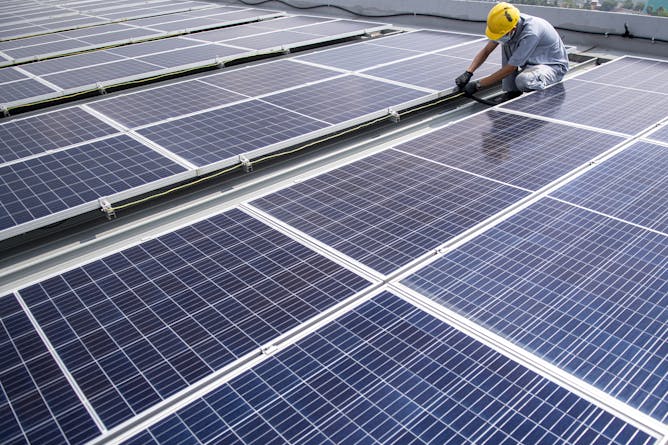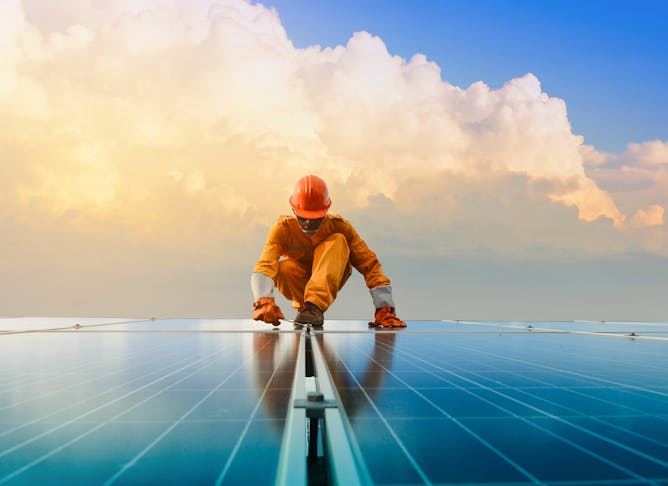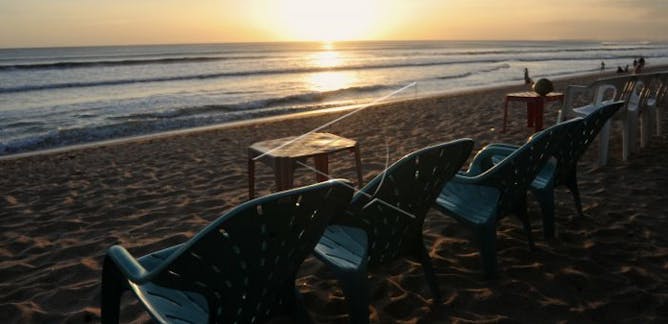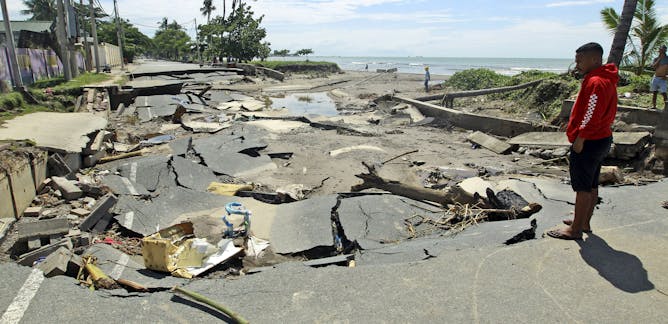|
The talks of using solar energy as alternative energy for electricity in Indonesia have intensified in the past two years. Numerous studies have shown that Indonesia, with its year-round sunshine, has solar energy potential that it can generate for electricity. But, the largest economy in Southeast Asia still heavily depends on fossil fuels to run its power plants.
The Conversation Indonesia has published a series of articles to support the development of alternative energy as our commitment to promote renewable energy in the country.
Researchers from The Purnomo Yusgiantoro Center wrote the latest article on the topic. It argues how resorting to solar energy can help the government provide electricity to the country's remote regions.
Another interesting article comes from Fiona Suwana of Queensland University of Technology and Wijayanto of Universitas Diponegoro in Semarang, Central Jakarta. They discuss how the development of digital technology has provided both opportunities and challenges for the country’s political movements.
|

A worker doing maintenance on a solar panel system.
Antara Foto
Budi Prayogo Sunariyanto, The Purnomo Yusgiantoro Center ; Vivi Fitriyanti, The Purnomo Yusgiantoro Center
The adoption of solar electrification can boost livelihood and economic activities in remote areas.
|

A man works at a solar power station.
www.shutterstock.com
David Firnando Silalahi, Australian National University
With its abundant sunshine and unique topography, Indonesia is able to generate 100% green electricity from its solar energy by 2050.
|
COVID-19 related
|
-
Graeme MacRae, Massey University; I Nyoman Darma Putra, Universitas Udayana
Many Balinese believe COVID-19 cannot be fought with health measures alone, and requires ritual offerings and prayer. But collective ritual places people at more risk.
-
Fiona Suwana, Queensland University of Technology; Wijayanto, Universitas Diponegoro
The Indonesian government is criticised for using the pandemic as an excuse to repress.
|
|
Marginal communities
|

Ya-Yen Sun, The University of Queensland; Futu Faturay, Badan Kebijakan Fiskal, Kementerian Keuangan RI; Ilmiawan Auwalin, Universitas Airlangga; Jie Wang, The University of Queensland; Lintje Sie, The University of Queensland
The COVID-19 pandemic has decimated many opportunities for those who were already financially disadvantaged.
| |

Thushara Dibley, University of Sydney; Aaron Opdyke, University of Sydney; Amanda Howard, University of Sydney; Pradytia Putri Pertiwi, Universitas Gadjah Mada
Overlooking people with disability in disaster preparations and responses makes them even more vulnerable. A new partnership has shown they can play meaningful and active roles.
|
|
|